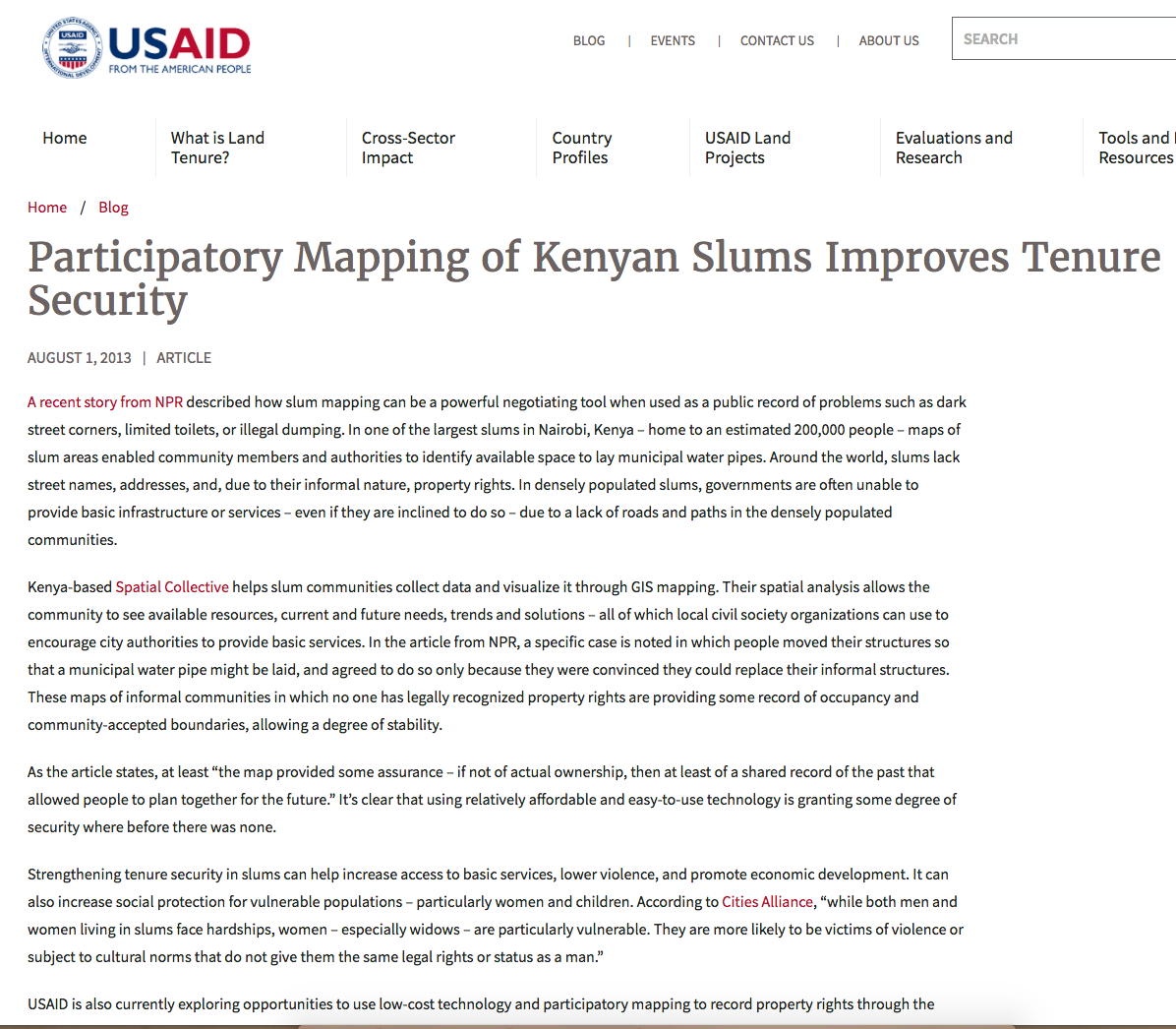Resource information
A recent story from NPR described how slum mapping can be a powerful negotiating tool when used as a public record of problems such as dark street corners, limited toilets, or illegal dumping. In one of the largest slums in Nairobi, Kenya – home to an estimated 200,000 people – maps of slum areas enabled community members and authorities to identify available space to lay municipal water pipes. Around the world, slums lack street names, addresses, and, due to their informal nature, property rights. In densely populated slums, governments are often unable to provide basic infrastructure or services – even if they are inclined to do so – due to a lack of roads and paths in the densely populated communities.
Kenya-based Spatial Collective helps slum communities collect data and visualize it through GIS mapping. Their spatial analysis allows the community to see available resources, current and future needs, trends and solutions – all of which local civil society organizations can use to encourage city authorities to provide basic services. In the article from NPR, a specific case is noted in which people moved their structures so that a municipal water pipe might be laid, and agreed to do so only because they were convinced they could replace their informal structures. These maps of informal communities in which no one has legally recognized property rights are providing some record of occupancy and community-accepted boundaries, allowing a degree of stability.
As the article states, at least “the map provided some assurance – if not of actual ownership, then at least of a shared record of the past that allowed people to plan together for the future.” It’s clear that using relatively affordable and easy-to-use technology is granting some degree of security where before there was none.
Strengthening tenure security in slums can help increase access to basic services, lower violence, and promote economic development. It can also increase social protection for vulnerable populations – particularly women and children. According to Cities Alliance, “while both men and women living in slums face hardships, women – especially widows – are particularly vulnerable. They are more likely to be victims of violence or subject to cultural norms that do not give them the same legal rights or status as a man.”
USAID is also currently exploring opportunities to use low-cost technology and participatory mapping to record property rights through the Evaluation, Research and Communication (ERC) project.


